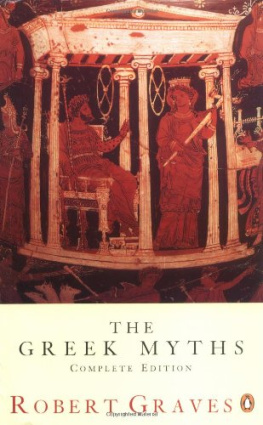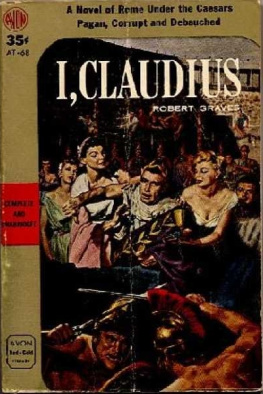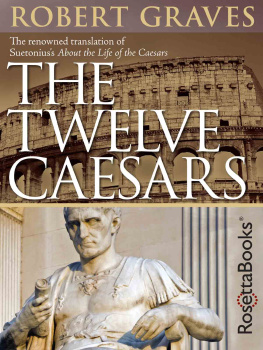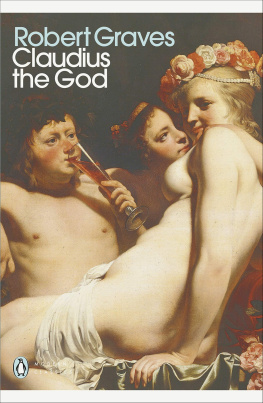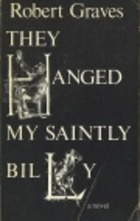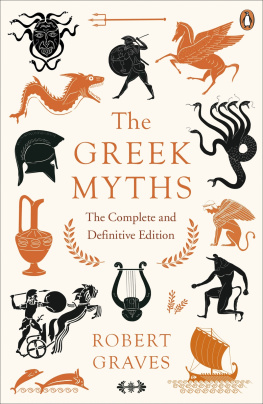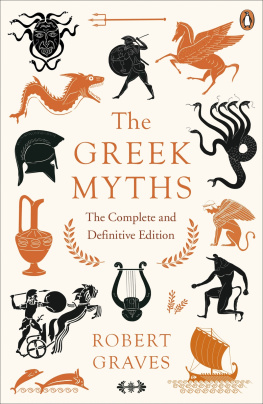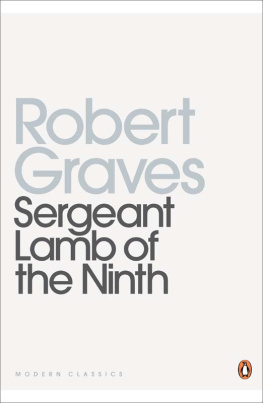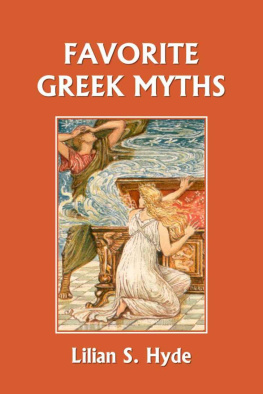Robert Graves - The Greek Myths: Complete Edition
Here you can read online Robert Graves - The Greek Myths: Complete Edition full text of the book (entire story) in english for free. Download pdf and epub, get meaning, cover and reviews about this ebook. genre: Non-fiction. Description of the work, (preface) as well as reviews are available. Best literature library LitArk.com created for fans of good reading and offers a wide selection of genres:
Romance novel
Science fiction
Adventure
Detective
Science
History
Home and family
Prose
Art
Politics
Computer
Non-fiction
Religion
Business
Children
Humor
Choose a favorite category and find really read worthwhile books. Enjoy immersion in the world of imagination, feel the emotions of the characters or learn something new for yourself, make an fascinating discovery.
- Book:The Greek Myths: Complete Edition
- Author:
- Genre:
- Rating:3 / 5
- Favourites:Add to favourites
- Your mark:
- 60
- 1
- 2
- 3
- 4
- 5
The Greek Myths: Complete Edition: summary, description and annotation
We offer to read an annotation, description, summary or preface (depends on what the author of the book "The Greek Myths: Complete Edition" wrote himself). If you haven't found the necessary information about the book — write in the comments, we will try to find it.
The Greek Myths: Complete Edition — read online for free the complete book (whole text) full work
Below is the text of the book, divided by pages. System saving the place of the last page read, allows you to conveniently read the book "The Greek Myths: Complete Edition" online for free, without having to search again every time where you left off. Put a bookmark, and you can go to the page where you finished reading at any time.
Font size:
Interval:
Bookmark:
Robert Graves The Greek Myths
1955, revised 1960
Robert Graves was born in 1895 at Wimbledon, son of Alfred Perceval Graves, the Irish writer, and Amalia von Ranke. He went from school to the First World War, where he became a captain in the Royal Welch Fusiliers. His principal calling is poetry, and his Selected Poems have been published in the Penguin Poets. Apart from a year as Professor of English Literature at Cairo University in 1926 he has since earned his living by writing, mostly historical novels which include: I, Claudius ; Claudius the God ; Sergeant Lamb of the Ninth ; Count Belisarius ; Wife to Mr Milton (all published as Penguins); Proceed, Sergeant Lamb ; The Golden Fleece ; They Hanged My Saintly Billy ; and The Isles of Unwisdom . He wrote his autobiography, Goodbye to All That (a Penguin Modem Classic), in 1929. His two most discussed non-fiction books are The White Goddess , which presents a new view of the poetic impulse, and The Nazarene Gospel Restored (with Joshua Podro), a re-examination of primitive Christianity. He has translated Apuleius, Lucan, and Svetonius for the Penguin Classics. He was elected Professor of Poetry at Oxford in 1962.
Contents
Foreword
Introduction
I. The Pelasgian Creation Myth
2. The Homeric And Orphic Creation Myths
3. The Olympian Creation Myth
4. Two Philosophical Creation Myths
5. The Five Ages Of Man
6. The Castration Of Uranus
7. The Dethronement Of Cronus
8. The Birth Of Athene
9. Zeus And Metis
10. The Fates
11. The Birth Of Aphrodite
12. Hera And Her Children
13. Zeus And Hera
14. Births Of Hermes, Apollo, Artemis, And Dionysus
15. The Birth Of Eros
16. Poseidons Nature And Deeds
17. Hermess Nature And Deeds
18. Aphrodites Nature And Deeds
19. Aress Nature And Deeds
20. Hestias Nature And Deeds
21. Apollos Nature And Deeds
22. Artemiss Nature And Deeds
23. Hephaestuss Nature And Deeds
24. Demeters Nature And Deeds
25. Athenes Nature And Deeds
26. Pans Nature And Deeds
27. Dionysuss Nature And Deeds
28. Orpheus
29. Ganymedes
30. Zagreus
31. The Gods Of The Underworld
32. Tyche And Nemesis
33. The Children Of The Sea
34. The Children Of Echidne
35. The Giants Revolt
36. Typhon
37. The Aloids
38. Deucalions Flood
39. Atlas And Prometheus
40. Eos
41. Orion
42. Helius
43. The Sons Of Hellen
44. Ion
45. Alcyone And Ceyx
46. Tereus
47. Erechtheus And Eumolpus
48. Boreas
49. Alope
50. Asclepius
51. The Oracles
52. The Alphabet
53. The Dactyls
54. The Telchines
55. The Empusae
56. Io
57. Phoroneus
58. Europe And Cadmus
59. Cadmus And Harmonia
60. Belus And The Danaids
61. Lamia
62. Leda
63. Ixion
64. Endymion
65. Pygmalion And Galatea
66. Aeacus
67. Sisyphus
68. Salmoneus And Tyro
69. Alcestis
70. Athamas
71. The Mares of Glaucus
72. Melampus
73. Perseus
74. The Rival Twins
75. Bellerophon
76. Antiope
77. Niobe
78. Caenis And Caeneus
79. Erigone
80. The Calydonian Boar
81. Telamon And Peleus
82. Aristaeus
83. Midas
84. Cleobis And Biton
85. Narcissus
86. Phyllis And Carya
87. Arion
88. Minos And His Brothers
89. The Loves Of Minos
90. The Children Of Pasipha
91. Scylla And Nisus
92. Daedalus And Talos
93. Catreus And Althaemenes
94. The Sons Of Pandion
95. The Birth Of Theseus
96. The Labours Of Theseus
97. Theseus And Medea
98. Theseus In Crete
99. The Federalization Of Attica
100. Theseus And The Amazons
101. Phaedra And Hippolytus
102. Lapiths And Centaurs
103. Theseus In Tartarus
104. The Death Of Theseus
105. Oedipus
106. The Seven Against Thebes
107. The Epigoni
108. Tantalus
109. Pelops And Oenomaus
110. The Children Of Pelops
111. Atreus And Thyestes
112. Agamemnon And Clytaemnestra
113. The Vengeance Of Orestes
114. The Trial Of Orestes
115. The Pacification Of The Erinnyes
116. Iphigeneia Among The Taurians
117. The Reign Of Orestes
118. The Birth Of Heracles
119. The Youth Of Heracles
120. The Daughters Of Thespius
121. Erginus
122. The Madness Of Heracles
123. The First Labour: The Nemean Lion
124. The Second Labour: The Lernaean Hydra
125. The Third Labour: The Ceryneian Hind
126. The Fourth Labour: The Eryminthian Boar
127. The Fifth Labour: The Stables Of Augeias
128. The Sixth Labour: The Stymphalian Birds
129. The Seventh Labour: The Cretan Bull
130. The Eighth Labour: The Mares Of Diomedes
131. The Ninth Labour: Hippolytes Girdle
132. The Tenth Labour: The Cattle Of Geryon
133. The Eleventh Labour: The Apples Of The Hesperides
134. The Twelfth Labour: The Capture Of Cerberus
135. The Murder Of Iphitus
136. Omphale
137. Hesione
138. The Conquest Of Elis
139. The Capture Of Pylus
140. The Sons Of Hippocon
141. Auge
142. Deianeira
143, Heracles In Trachis
144. Iole
145. The Apotheosis Of Heracles
146. The Children Of Heracles
147. Linus
148. The Argonauts Assemble
149. The Lemnian Women And King Cyzicus
150. Hylas, Amycus, And Phineus
151. From The Symplegades To Colchis
152. The Seizure Of The Fleece
153. The Murder Of Apsyrtus
154. The Argo Returns To Greece
155. The Death Of Pelias
156. Medea At Ephyra
157. Medea In Exile
158. The Foundation Of Troy
159. Paris And Helen
160. The First Gathering At Aulis
161. The Second Gathering At Aulis
162. Nine Years Of War
163. The Wrath Of Achilles
164. The Death Of Achilles
165. The Madness Of Ajax
166. The Oracles Of Troy
167. The Wooden Horse
168. The Sack Of Troy
169. The Returns
170. Odysseuss Wanderings
171. Odysseuss Homecoming
FOREWORD
SINCE revising The Greek Myths in 1958, I have had second thoughts about the drunken god Dionysus, about the Centaurs with their contradictory reputation for wisdom and misdemeanour, and about the nature of divine ambrosia and nectar. These subjects are closely related, because the Centaurs worshipped Dionysus, whose wild autumnal feast was called the Ambrosia. I no longer believe that when his Maenads ran raging around the countryside, tearing animals or children in pieces and boasted afterwards of travelling to India and back, they had intoxicated themselves solely on wine or ivy ale. The evidence, summarized in my What Food the Centaurs Ate (1958), suggests that Satyrs (goat-totem tribesmen), Centaurs (horse-totem tribesmen), and their Maenad womenfolk, used these brews to wash down mouthfuls of a far stronger drug: namely a raw mushroom, amanita muscaria , which induces hallucinations, senseless rioting, prophetic sight, erotic energy, and remarkable muscular strength. Some hours of this ecstasy are followed by complete inertia; a phenomenon that would account for the story of how Lycurgus, armed only with an ox-goad, routed Dionysuss drunken army of Maenads and Satyrs after its victorious return from India.
On an Etruscan mirror the amanita muscaria is engraved at Ixions feet; he was a Thessalian hero who feasted on ambrosia among the gods. Several myths are consistent with my theory that his descendants, the Centaurs, ate this mushroom; and, according to some historians, it was later employed by the Norse berserks to give them reckless power in battle. I now believe that ambrosia and nectar were intoxicant mushrooms: certainly the amanita muscaria ; but perhaps others, too, especially a small, slender dung-mushroom named panaeolus papilionaceus , which induces harmless and most enjoyable hallucinations. A mushroom not unlike it appears on an Attic vase between the hooves of Nessus the Centaur. The gods for whom, in the myths, ambrosia and nectar were reserved, will have been sacred queens and kings of the pre-Classical era. King Tantaluss crime was that he broke the taboo by inviting commoners to share his ambrosia.
Font size:
Interval:
Bookmark:
Similar books «The Greek Myths: Complete Edition»
Look at similar books to The Greek Myths: Complete Edition. We have selected literature similar in name and meaning in the hope of providing readers with more options to find new, interesting, not yet read works.
Discussion, reviews of the book The Greek Myths: Complete Edition and just readers' own opinions. Leave your comments, write what you think about the work, its meaning or the main characters. Specify what exactly you liked and what you didn't like, and why you think so.

